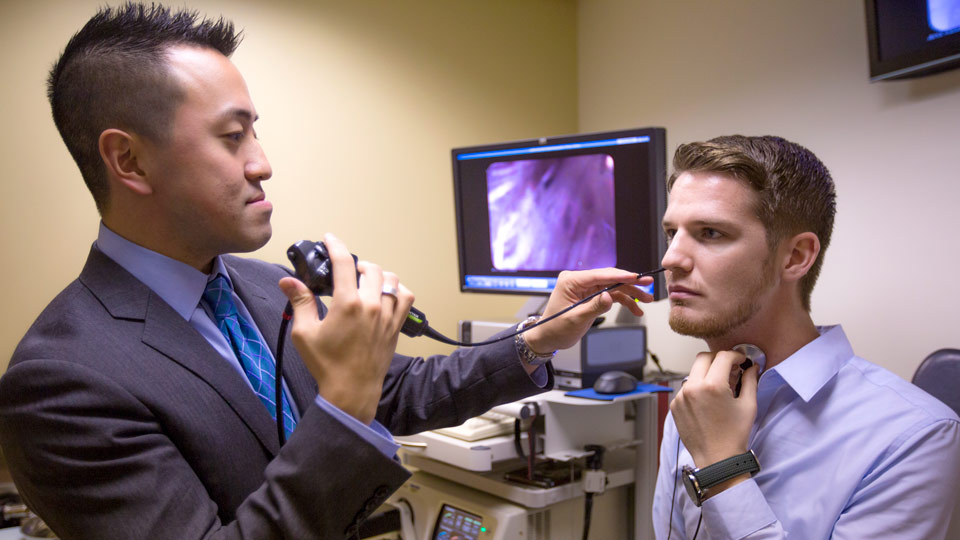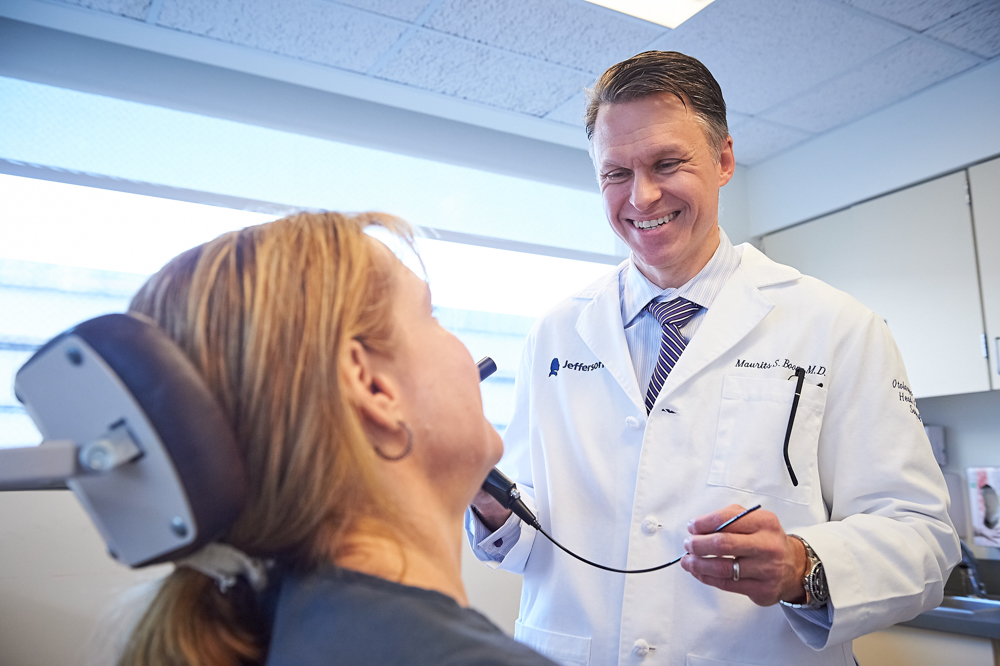Exploring the Field of Otolaryngology: What to Anticipate When You Speak With an ENT
Otolaryngology, typically described as ENT, incorporates the diagnosis and therapy of throat, ear, and nose problems. For those experiencing relevant issues, consulting an ENT professional can provide quality and alleviation. Comprehending what to expect during such examinations is important for reliable interaction and treatment. This summary will outline essential facets of the ENT experience, including typical reasons for check outs and the processes entailed in diagnosis and therapy.

Understanding Otolaryngology: A Review
Otolaryngology, commonly described as ENT (Throat, ear, and nose) medication, is a specialized branch of medication that concentrates on the diagnosis and therapy of conditions impacting these important locations of the body. This field includes a vast array of disorders, including those relevant to hearing, balance, breathing feature, and speech. Otolaryngologists are trained to handle both clinical and surgical treatments, utilizing sophisticated strategies and innovations. Their expertise expands past standard ailments, dealing with problems such as allergic reactions, sinus infections, and hearing loss. In addition, they play a vital function in the administration of head and neck cancers, supplying extensive treatment customized to private client needs. Overall, otolaryngology stays crucial for keeping wellness and lifestyle in damaged people.
Common Factors to See an ENT Expert
Lots of people seek the competence of an ENT professional for a range of factors, reflecting the varied nature of conditions that influence the ear, nose, and throat. Common concerns include chronic sinusitis, which frequently results in persistent nasal congestion and facial discomfort. Allergic reactions and their associated signs, such as sneezing and itching, also prompt check outs to these professionals (Sinus). Hearing loss, whether gradual or abrupt, is another substantial factor for consultation. In enhancement, people may look for examination for throat problems, including relentless hoarseness or swallowing problems. Rest apnea, defined by cut off breathing during sleep, is often resolved by ENT specialists. Each of these problems highlights the significance of specialized care in handling intricate ENT-related health issues
Preparing for Your ENT Visit
When preparing for an ENT consultation, it is important to collect relevant info and think about any type of details concerns. Individuals must put together a detailed case history, consisting of previous ear, nose, or throat problems, surgical procedures, and current drugs. Documenting symptoms-- such as intensity, frequency, and period-- can provide valuable understandings for the ENT professional. In addition, individuals must prepare a listing of inquiries they want to ask, making certain that all concerns are attended to during the visit. Bringing along any kind of relevant medical records or examination outcomes can even more aid the ENT in understanding the client's problem. Patients ought to verify their visit details, consisting of day, place, and time, to reduce any last-minute confusion. Appropriate prep work can boost the effectiveness of the examination and lead to better results.
What to Expect Throughout the Examination
As the consultation starts, the client can expect to participate in an extensive discussion with the ENT expert regarding their signs and symptoms and case history. The professional will certainly ask about the duration, frequency, and intensity of signs and symptoms such as hearing loss, nasal congestion, or sore throat. In addition, the individual's previous clinical conditions, drugs, and any pertinent family members background will be examined, helping the professional in developing a full understanding of the patient's health and wellness. The ENT may likewise inquire about way of living aspects, such as exposure to toxic irritants or irritants. This open dialogue establishes a foundation for the assessment, guaranteeing that the patient's problems are dealt with and establishing the phase for any kind of required analyses or recommendations try here for therapy.
Diagnostic Examinations and Procedures in Otolaryngology
A variety of diagnostic examinations and treatments are crucial in otolaryngology to precisely assess and identify conditions influencing the nose, ear, and throat. Usual tests include audiometry, which measures hearing feature, and tympanometry, examining center ear pressure. Nasal endoscopy allows visualization of the nasal passages and sinuses, while laryngoscopy checks out the throat and singing cords. Imaging strategies, such as CT scans and MRIs, give in-depth views of head and neck structures. Allergic reaction testing may likewise be conducted to recognize triggers for sinus or respiratory system concerns. These diagnostic tools enable ENT experts to create an extensive understanding of individuals' conditions, ensuring tailored and reliable monitoring plans. Proper diagnosis is necessary for successful treatment outcomes in otolaryngology.
Therapy Options Provided by ENT Specialists
ENT experts provide a selection of treatment alternatives tailored to attend to specific conditions impacting the ear, nose, and throat. These treatments range from conservative approaches, such as medication and way of life adjustments, to even more intrusive treatments. For instance, allergic reactions might be handled with antihistamines or immunotherapy, while persistent sinus problems could call for nasal corticosteroids or sinus surgery. For hearing loss, ENT specialists often suggest listening devices or medical treatments like cochlear implants. In cases of throat conditions, alternatives can consist of speech therapy or procedures to eliminate obstructions. Furthermore, they might give advice for handling sleep apnea, consisting of making use of CPAP gadgets or medical interventions. On the whole, the goal is to boost clients' top quality of life via customized care and reliable treatment techniques.
When to Seek Follow-Up Treatment With an ENT
When to seek follow-up treatment with an ENT expert is important for handling continuous signs or issues associated to ear, nose, and throat conditions, recognizing. People must take into consideration scheduling a follow-up consultation if symptoms linger regardless of first therapy, such as chronic ear pain, nasal blockage, or throat discomfort. Adjustments in hearing, equilibrium issues, or uncommon nasal discharge might likewise warrant further assessment. Additionally, if a patient experiences negative effects from recommended medications or has actually undergone a medical treatment, follow-up treatment is very important to check recovery and attend to any kind of issues. Prompt appointments can ensure effective monitoring of problems, avoid prospective complications, and supply assurance regarding one's health. Seeking follow-up treatment advertises positive wellness monitoring in otolaryngology.
Frequently Asked Inquiries

What Certifications Should I Search for in an ENT Specialist?
When seeking an ENT professional, one should search for board qualification, relevant experience, and solid why not try these out client reviews. Furthermore, efficient interaction abilities and a thoughtful method can substantially improve the general treatment experience.
Exactly how Do I Pick the Right ENT for My Needs?
Selecting the right ENT expert entails evaluating their credentials, experience, and client evaluations (Voice). It is important to contemplate their communication style and technique to therapy, guaranteeing they straighten with the individual's details wellness needs and choices
Are There Any Kind Of Dangers Connected With ENT Procedures?
The threats associated with ENT treatments might include infection, bleeding, anesthetic difficulties, and prospective damages to bordering frameworks. Individuals ought to review these risks with their physician to understand private worries and guarantee informed decisions.
Just How Can I Manage Anxiousness Prior To My ENT Appointment?
To manage anxiousness before a consultation, people can exercise deep breathing workouts, imagine favorable outcomes, prepare inquiries ahead of time, and look for assistance from pals or family, cultivating a sense of confidence and calmness.
What Should I Do if I Experience Negative Effects From Therapy?
If negative effects from therapy occur, the person should immediately report them to their healthcare provider. Adjustments to treatment or added treatments may be required to guarantee safety and efficiency in handling their condition - ENT. As the click over here examination starts, the patient can anticipate to involve in a comprehensive conversation with the ENT specialist concerning their signs and medical history. These analysis tools allow ENT experts to develop an extensive understanding of clients' conditions, ensuring customized and reliable monitoring plans. ENT professionals offer a selection of treatment choices customized to resolve particular conditions affecting the nose, throat, and ear. When looking for an ENT expert, one must look for board certification, relevant experience, and strong individual testimonials. Selecting the ideal ENT professional entails evaluating their credentials, experience, and person reviews